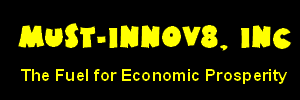Imagine being asked to do a very intense job that required you to teach students knowledge and skills while you have never been allowed to see how this intense knowledge and skills that you are being asked to teach is relevant and useful in the real world. Then in the middle of this effort being asked that inevitable student question… “Why would I ever want to know this stuff?”
Now imagine being able to provide a wonderful answer from personal experience to that question…
Our good friend Mack McCary, at NC New Schools Project, shared an amazing story about a science teacher from a small rural North Carolina county. The teacher had the opportunity to learn how to answer that impossibly difficult question: Why would I ever want to know that. Here are Mr. Kirk Kennedy’s thoughts and reflection on the importance of knowing the real-world relevance of science.
Lessons from the field: Why science matters
By Kirk Kennedy, Science Teacher, East Duplin High
What do a chemical company in the Research Triangle Park and a biology classroom in Beulaville in rural Duplin County have in common?
That is the question I was asking myself before entering into a two-week externship this summer with BASF. After working with the scientists it became clear that they – like my own students – conducted experiments and recorded observations on a daily basis. Though I always knew that the skills I teach my students are important ones, now I know that they are also relevant with real-world applications.
I was awarded the opportunity to observe at BASF after being selected as a Kenan Fellow through a partnership with the NC New Schools Project and the NC Department of Public Instruction. My work with the fellowship requires me to construct a project-based lesson on genetics, and BASF is a rich environment to study biotechnology in action.
While I observed a great deal of work in the field of genetics, I took away a great deal more that I can share with my students. The first thing I noticed when entering BASF was that science concepts such as gene mapping, cloning, gel electrophoresis, experimental design, and many others were actually being used in the “real world.” This was the first time I had ever seen “real” science taking place outside of the classroom. Now, I can do more than just tell students about gene mapping, cloning, and recording observations, I can give them examples of how it is being applied.
One of the biggest questions I get from my students is, “Why do I need to know this?” or “Why is biology important in my life?” Students want to see that what they are learning in the classroom has a direct impact and relevance in their lives. If I can help make this connection, their interest and desire to learn takes a real jump. Teachers don’t often see techniques and concepts that they are teaching applied in the workforce. The externship allowed me to see actual science practices, such as the scientific method, experimental design, and other science techniques taking place outside the classroom. I believe that being able to experience this will allow me to make connections that I have never made before for my students. For example, scientists at BASF keep a lab book where they record their observations and data. These lab books become legal documents that could mean the difference in millions of dollars for the company if a dispute occurred or are simply used to trace how certain genes have been created and tested. In the classroom, I plan on stressing the importance of keeping good records and creating accurate lab reports by making references to what I saw at BASF.
Not only will my students benefit indirectly from the scientists at BASF, they may also be able to interact with these professionals directly. One of the most important resources I acquired during my time at BASF was the network of professional contacts. I feel confident that most of the scientists I worked with would be willing to collaborate with me when I am developing new projects and experiments for my classes. Perhaps even more exciting is the possibility of them skyping with my students. Giving a group of teenagers from rural North Carolina a chance to talk to a scientist who works in the field could help to make their world just a little bit bigger.
But the most lasting lesson for me was an introduction to potential job opportunities available to my students when they graduate from college. I will be able to tell them about jobs they can get with a biology degree other than becoming a doctor. Most of my students’ favorite part of biology class is the experiments. If they chose to pursue a job at BASF or in a laboratory elsewhere, they can do experiments every day for a living. In a word, that’s relevance.
Mr. Kennedy’s experience dramatically demonstrates the importance of have exposure to real world exposure to applied science. Seeing the real-world application of an abstract concept can be transformational. Imagine the impact if every summer STEM teachers across the country had the opportunity to have an immersive intern experience. If industry, higher education and K-12 educators are serious about the importance of engaging our students in STEM, then we need to understand that both students and teachers need the kinds of real world experiences that Mr. Kennedy has had.
As Mr. Kennedy observed, seeing the relevance of what you are teaching is an empowering experience. Now imagine Mr. Kennedy using his new network of contacts at BASF to get his kids opportunities for tours, job shadowing, student internships and the ability to collaborate on BASF’s real-world problems for his students to solve.
We need to make relevant internships a reality for all of our science and math teachers!

Thanks for sharing Kirk’s story — we’re proud to be able to partner with him!